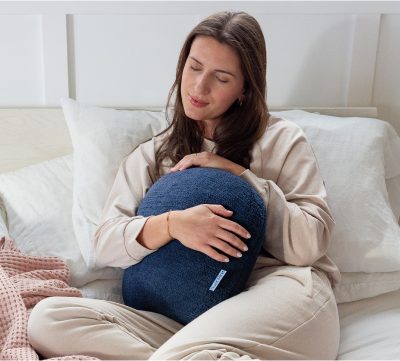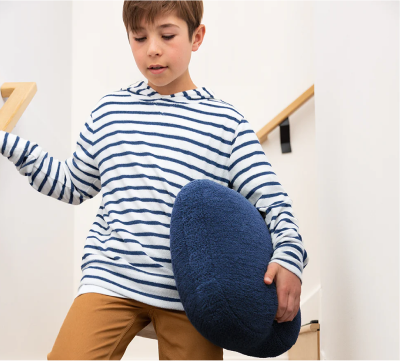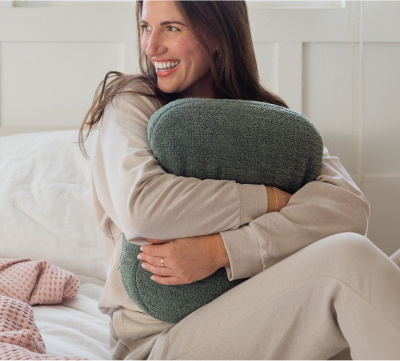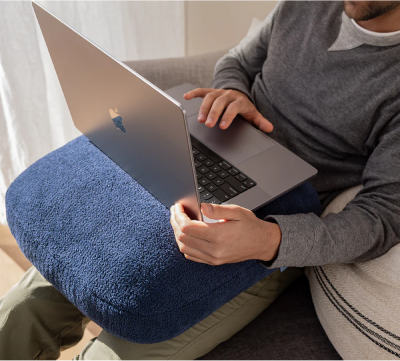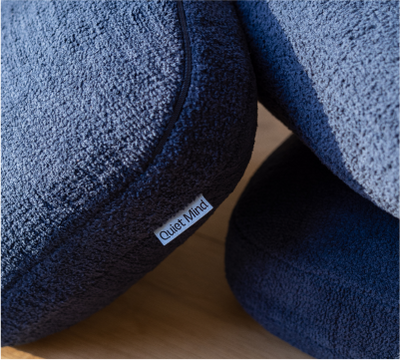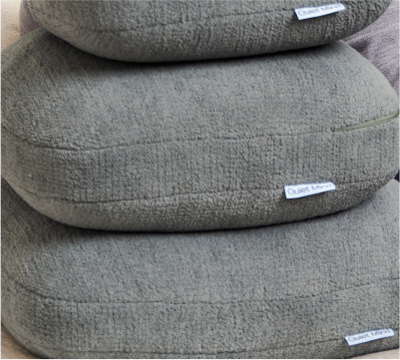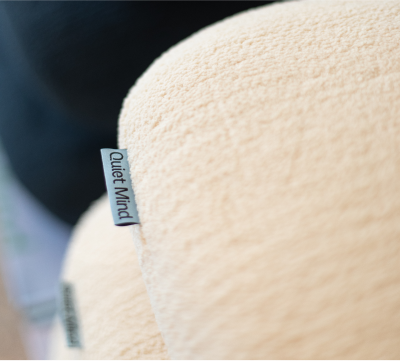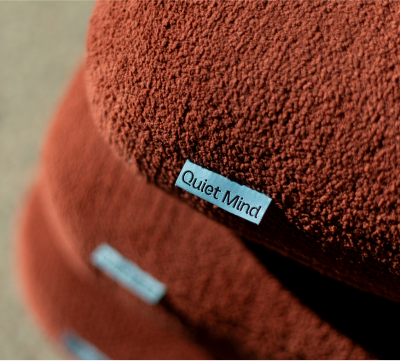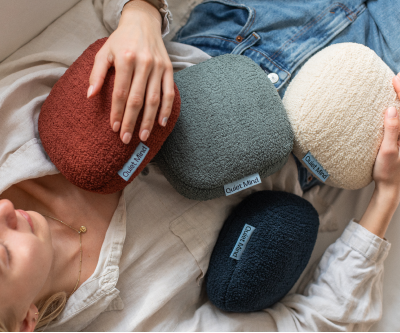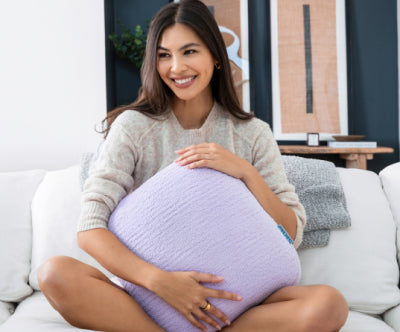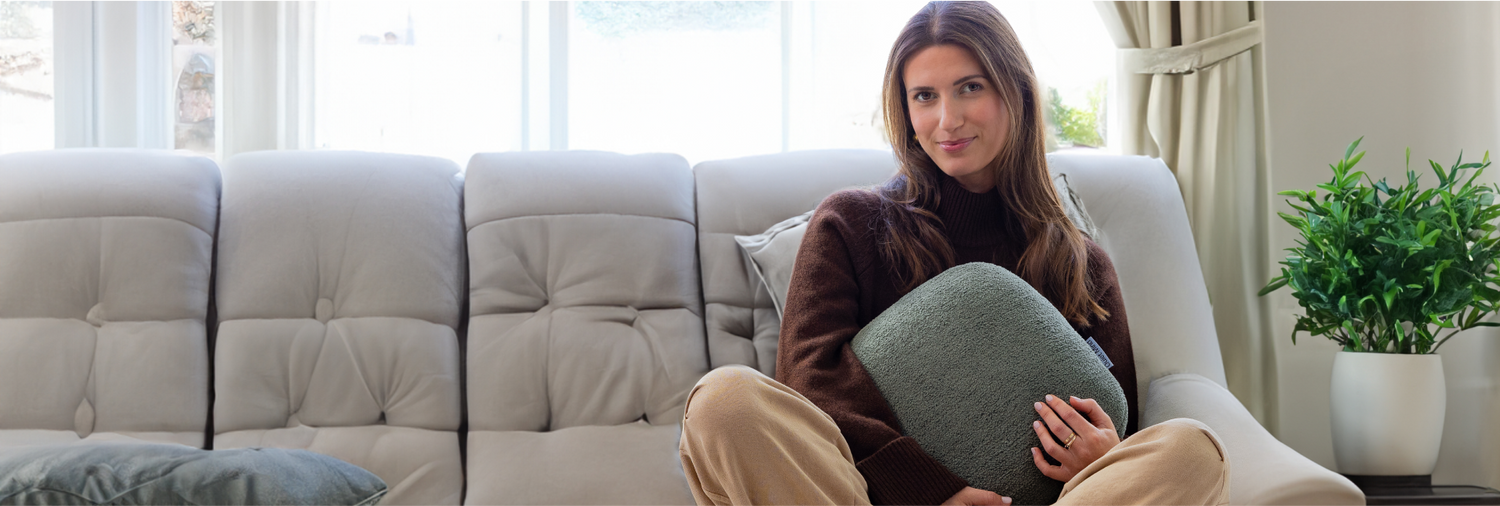Some nights, no matter how tired your body feels, sleep remains out of reach. You've turned off the lights, read a few pages, even tried counting sheep. Still, rest doesn't come.
If you want to sleep better at night naturally, you're not alone. Many people experience occasional or chronic sleep disruptions that interfere with overall sleep quality. But the good news? There are gentle, research-backed ways to help your body return to a state of restful, natural sleep.
Why Natural Sleep Supports Long-Term Health
Sleep isn’t something you can force. It happens when your body and mind are ready. That’s why natural sleep solutions are often thought to be more sustainable than medication. They work with your biology, not against it.
Over time, consistent natural practices help:
- Regulate your sleep cycle
- Improve your sleep quality
- Support the sleep hormone melatonin
- Reduce reliance on sedatives or stimulants
- Minimize sleep disturbances
- Address long-term sleep deprivation
These methods build a foundation your body can trust—so restful sleep becomes a rhythm, not a struggle.
Tips for Better Sleep: Create a Sleep Routine That Works
Your body thrives on rhythm. Establishing a consistent sleep schedule helps regulate your internal clock, making it easier to fall asleep and wake naturally. According to the American Academy of Sleep Medicine, the recommended amount of sleep for a healthy adult is 7–9 hours per night.
Tips for better sleep routine:
- Go to bed and wake up at the same time daily
- Avoid sleeping in late on weekends
- Begin winding down at least 30 minutes before bed
Creating this rhythm helps your body recognize when it's time to relax and get ready for sleep.
A Bedtime Ritual to Promote Sleep Naturally
Your evening ritual should signal to your body that it’s time to slow down. Instead of scrolling late into the night, opt for soothing habits that make it easier to get a good night’s sleep.
Ideas for a calming bedtime routine:
- Light stretching or slow yoga
- Deep breathing exercises
- Journaling or light reading
- A warm bath or shower
- Herbal tea
Sleep Hygiene: Optimize Your Environment for Restful Sleep
Where you sleep has a major impact on how you sleep. An environment that’s too bright, loud, or cluttered can make it harder to fall asleep and stay asleep.
To improve your sleep space:
- Reserve your bed for sleep and sex only
- Use blackout curtains or a sleep mask
- Keep your room cool and quiet
- Remove digital devices from your nightstand
- Choose breathable bedding
As per recent research, small changes in your sleep hygiene can significantly improve sleep quality and reduce nighttime sleep disruptions.
An Hour Before Bedtime: Reduce Blue Light Exposure
Exposure to blue light, especially from screens, interferes with the natural release of melatonin—a hormone associated with sleep-wake regulation.
Simple adjustments:
- Dim lights in your home after sunset
- Stop using screens at least an hour before bed
- Install blue light filters on your devices
It’s best to avoid overstimulating visuals late in the day. Instead, use this time to relax and prepare your mind for a restful night’s sleep.
Natural Sleep Aids That Help You Sleep Without Medication
Natural sleep aids can support your efforts to establish better sleep patterns. These solutions are typically non-habit forming and can be part of your nightly ritual.
Common natural sleep aids:
- Chamomile: Calming and widely used in teas
- Valerian Root: May help you fall asleep faster
- Lavender: Used in essential oils and sprays to promote calm
- Magnesium: Supports muscle relaxation and reduces stress
These tools work gently to encourage restful sleep and can help create a more consistent, restorative nighttime routine. For those who find comfort in closeness, sharing a sleeping space with a partner may offer an added sense of calm.
These tools affect sleep gently and can help create a more consistent and restorative nighttime sleep experience. For those who find comfort in closeness, sharing a sleeping space with a partner may offer an added sense of calm.
If you’re looking to naturally wind down at night, Quiet Mind’s lavender weighted pillow offers the soothing scent of lavender combined with gentle pressure stimulation — designed to help calm the nervous system and ease you into sleep.
Diet and Exercise: How Food and Activity Affect Sleep
Your diet and exercise habits directly affect sleep. Eating or drinking the wrong things late in the day can make it harder to get to sleep and stay there.
Eat for better sleep:
- Include tryptophan-rich foods like turkey, oats, or bananas
- Avoid caffeine after 2 PM
- Skip alcohol before bed—it may make you drowsy, but lowers sleep quality
- Choose light meals in the evening to support digestion
It's a good idea to avoid heavy meals or stimulants late in the day if you're trying to get a better night’s sleep.
Daytime Habits That Promote Restful Sleep at Night
What you do throughout the day affects how easily you fall asleep at night. Regular routines help reduce sleep debt and stabilize your circadian rhythm.
Daily habits that improve your sleep:
- Get morning sunlight: Helps regulate melatonin
- Move regularly: Exercise reduces stress, but avoid intense workouts late in the day
- Limit naps: If you must nap, keep it under 30 minutes
Consistency with these habits supports overall sleep and helps your body stay ready for sleep when nighttime comes.
30 Minutes Before Bed: Try Relaxation Techniques That Help You Sleep
According to research, if you struggle with a racing mind, relaxation practices can help ease the transition into sleep.
Techniques to try 30 minutes before bed:
- Deep breathing: Inhale for 4, hold for 7, exhale for 8
- Progressive muscle relaxation: Tense and release each muscle group from toes to head. If you often wake with tingling arms or legs, it could be related to your sleep posture or nerve pressure.
- Guided meditation: Use body scans, mindfulness, or gratitude practice
These help signal to your nervous system that it's time to relax, making it easier to fall asleep naturally. For those dealing with sensory sensitivity or nighttime anxiety, these relaxation tools are designed to gently support better sleep without overwhelm.
Insomnia and When to Get Out of Bed for Sleep Issues
If natural methods haven’t helped after several weeks, your sleep challenges may be rooted in a deeper issue.
Signs of potential sleep disorders:
- Loud snoring or breathing interruptions (possible sleep apnea)
- Difficulty staying asleep despite good habits
- Extreme daytime fatigue
- Mood changes or difficulty concentrating
If you're unable to fall asleep or wake and can’t go back to bed after 20 minutes, get out of bed and do a quiet activity until you feel sleepy again. This helps retrain your brain to associate bed with sleep.
Final Thought: Let Sleep Come Naturally
Better sleep isn’t about forcing rest—it’s about inviting it. By creating a space of calm, establishing a reliable rhythm, and turning toward natural supports, you make it easier for your body to do what it already wants: rest.
Small, consistent actions lead to long-term sleep improvements. You deserve a night’s sleep that restores you—gently, deeply, naturally.
About Quiet Mind
At Quiet Mind, we believe in the power of simple, natural solutions to ease the mind and body. Our signature weighted pillows are designed to provide comforting pressure, helping to alleviate stress, anxiety, and restlessness.
Whether you're seeking a moment of calm during a hectic day or a more restful night's sleep, Quiet Mind offers tools to support your journey toward tranquility. Discover the soothing embrace of our weighted pillows and find your path to a quieter mind.
FAQs: Natural Sleep Tips
What are the best ways to sleep better naturally?
Maintain a consistent sleep schedule, limit screen time before bed, and use natural aids like magnesium or chamomile to support your sleep cycle.
Which foods help promote sleep?
Tryptophan-rich foods (turkey, oats), bananas, and complex carbs help the body produce melatonin. Avoid caffeine and heavy meals late in the day.
How does blue light affect sleep?
Blue light interferes with the release of melatonin, making it harder to fall asleep. Use filters or dim lighting an hour before bedtime.
Are natural remedies safe for long-term use?
Most natural sleep aids are safe for consistent use, but it’s wise to consult a healthcare provider—especially if you have other conditions or take medications.
What if I still can’t sleep after trying everything?
If you experience long-term sleep deprivation, it’s time to consult a specialist. There may be underlying causes that need professional attention.
